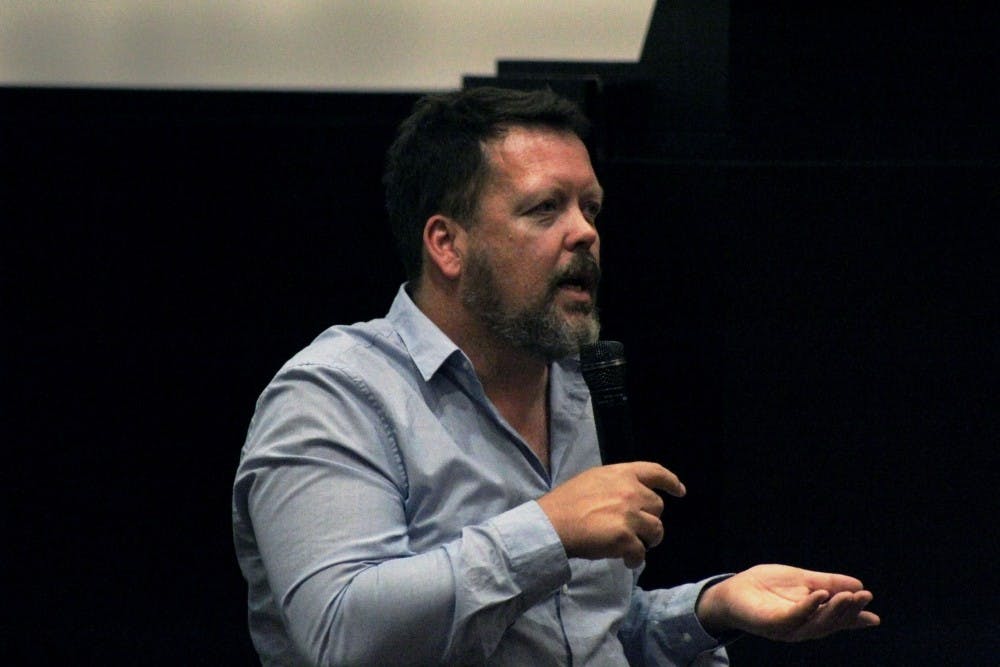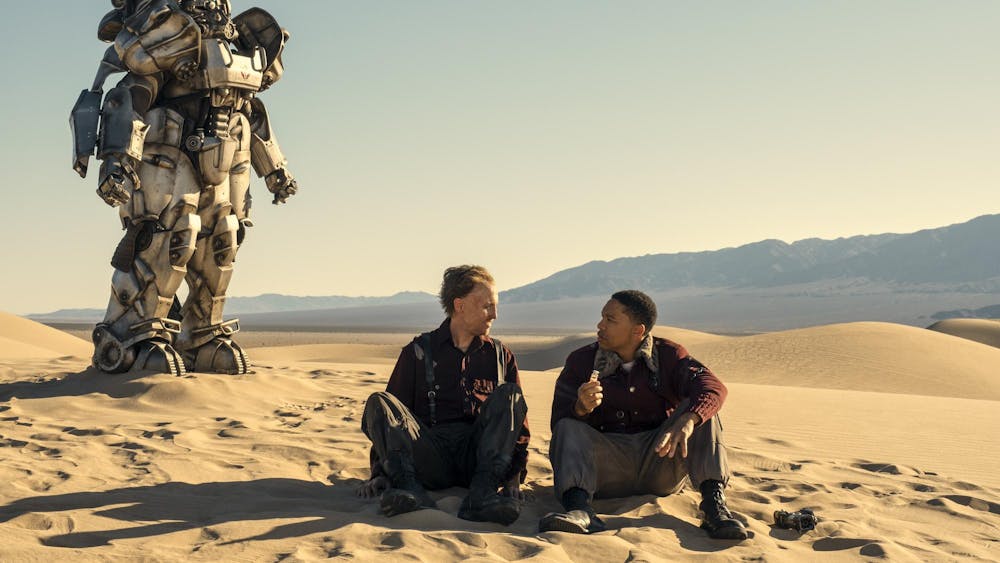South African filmmaker François Verster began his talk Monday at IU by describing his own definition of what a documentary is: a creative treatment of actuality. Verster said some filmmakers like to view documentaries as being either objective or subjective, however, he prefers to associate them with the terms integrity and authenticity instead.
As part of a co-collaboration between the Media School’s Center for Documentary Research and Practice and the Black Film Center/Archive, Verster led a free masterclass at the IU Cinema for those who enjoy watching and creating films.
Verster talked about his experience as a filmmaker, discussing topics such as creating documentaries on a small budget, ethics of displaying other people’s realities in your own films and the dilemma between telling the truth or creating the strongest stories. He then played clips of his documentaries, allowing for further discussion of filmmaking techniques.
“The reason I make documentaries is because I want to learn about the world that I live in,” Verster said. “If I knew what I wanted to say in a film, then I wouldn’t make it.”
Verster is a film director and documentary creator who is famous for his movies that “have an ‘undercurrent’ theme of social injustice and people picking up the pieces of their lives,” according to the Center for Documentary Research and Practice website. Verster enjoys being able to work with small cameras and an outlet that he calls “the freest form” of film, as he is able to work alone and be independent of any film restrictions.
One of the most distinguished features of his films is attributed to his ability to build a relationship between himself and the protagonist, which makes it easier for audience members to feel more deeply influenced by these main subjects. He often spends years documenting the lives of his subjects and stays involved with their past, present and future even after the documentary is finished.
Verster explained that a film turns out better when the subject of the documentary is not anxious to be on camera. As Verster gets to know them better, he pries them open and is able to get them to let their guard down. This allows for the subject to reflect and think deeper about themselves, leaving the audience with more of a connection to them.
“You have actually hit something that is true (when people open up on camera),” Verster said. “There is something that happens, some sort of a real moment that happens. Often the level of resistance you get equates to the level of meaning of truth that you get. The camera eventually finds the truth.”






